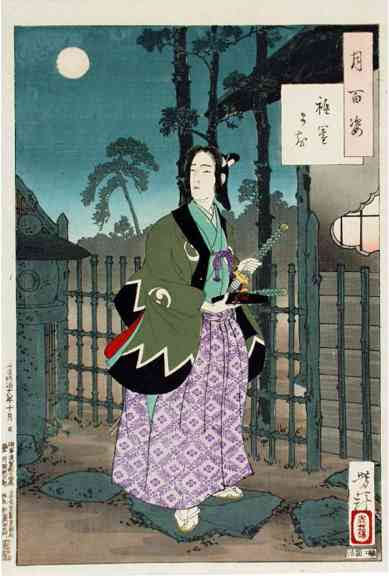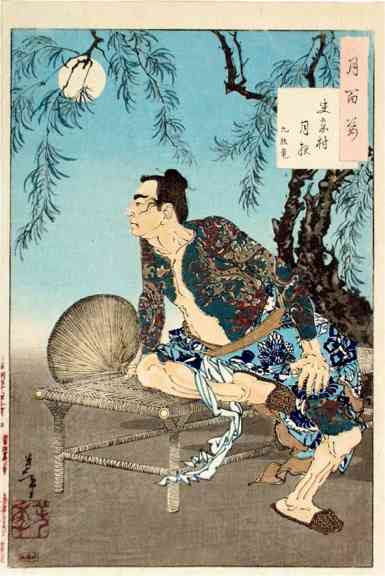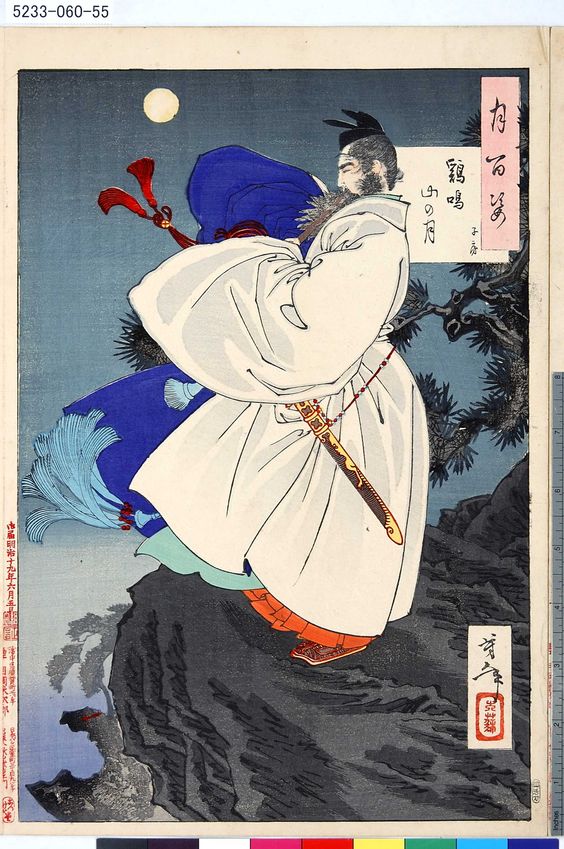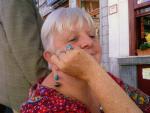|
Ben er mj compleet van bewust dat ik een soort Covic19 - dagboek schrijf, met als aandachtspunt de maan, gezien door de ogen van de Yoshitoshi. Want wat kun je beter doen dan naar de maan kijken, nu we overspoeld worden door de paranoia van de Corona-pandemie, al meer dan twee maanden lang?
Tot nu toe publiceerde ik alleen maar gracieuze Japanse en Chinese dames die lonkten naar de maan, maar Yoshitoshi maakte ook woodblock prints van Japanse en Chinese helden.
In de eerste prent, The Gion District (Gionmachi), zien we een scene uit het befaamde Kabuki toneelstuk Chushingura: een jongeman die een brief brengt naar een theehuis in Kyoto.
Op de tweede prent The village of the Shi clan on a moonlit night (Shikason tsukiyo) zie je een getatoueerde leraar gevechtssporten en in de derde prent, Mount Ji Ming moon (Keimeizan no tsuki) kijkt de Chinese held Zi Fang (Zhang Liang) in wijdse mantel naar de maan (in 800 voor Chr.)



The Gion District (Gionmachi)
In this scene from the famous Kabuki play Chushingura, the young Oishi Rikiya delivers a letter containing news about the forty-seven Ronin to the Ichiriki Teahouse in Kyoto where his father, Oishi Yuranosuke, is secretly organizing a vendetta to avenge his master’s death. (printed October 1885)
The village of the Shi clan on a moonlit night (Shikason tsukiyo)
Shi Jin, a fictitious martial arts instructor from the Chinese novel Shui hu Zhuan (The Water Margin), became an outlaw-hero when bandits attacked his village. He first captured them, but after hearing their story about corruption and suppression, joined them and fled to the marsh lands of the book title. Shi Jin's nickname Kumonryu (the nine dragoned) reflects his spectacular tattoo pattern. (printed November 1885)
Mount Ji Ming moon (Keimeizan no tsuki)
Zi Fang (Zhang Liang) was a hero of the wars which led to the establishment of the Han dynasty in China in around 200 BC. According to one version of the story, Zhang Liang climbed Mount Ji Ming on the eve of the decisive battle, and played the flute so beautifully that the enemy soldiers became homesick. They fled their camp in large numbers, leaving their commander no other option than to commit suicide. (printed June 1886.)
|




